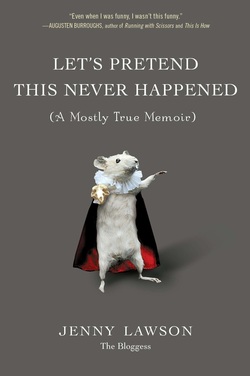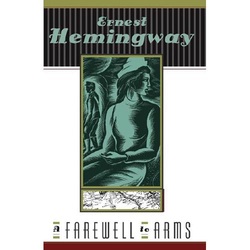
Author: Jenny Lawson
Genre: Memoir
Page # : 313
Date Published: 2012
Rating: 3.5 out of 5 stars
Recommend: Yes
If you’re anything like me, you could hardly express your excitement when you saw the mini Pop Collection section the O’Neill librarians added near the third floor printers over the summer. (I think I probably went down to the first floor once my entire freshman year. Much too far out of the way.) I immediately began to browse through the selection, looking for a book that would provide a lighthearted, fun contrast to the somewhat heavy readings required for my history and philosophy classes this semester. I found just that in Let’s Pretend This Never Happened.
If you’re wondering who Jenny Lawson is and why she has a memoir, don’t worry – I asked myself the same question when I first picked up the book. Better known as “The Bloggess,” Lawson is best known for her popular blog, a knowledge of which I found unnecessary to appreciate Let’s Pretend This Never Happened: although I still haven’t read any of her blog, I thoroughly enjoyed the memoir. She begins with her childhood in rural Texas, where she lived with her sister, mother, and taxidermist father. This somewhat unusual upbringing provides fodder for dozens of hysterically disturbing stories, and although none of my childhood memories include humiliation by giant turkeys or puppets made from dead squirrels, somehow Lawson makes her recollections both hilarious and relatable.
The memoir continues on to cover various points of her adult life. While Lawson may no longer live in a house with a taxidermy shop in the backyard, these later stories are just as perversely funny. While she does have a tendency to flit from topic to topic – the book has very little structure – she does so in a way that seems natural, as if we’re listening to her stream of consciousness.
While sometimes I would feel almost guilty for finding Lawson’s bizarre experiences and crude sense of humor so entertaining, I did thoroughly enjoy Let’s Pretend This Never Happened. It was the perfect book to pull out whenever I was feeling stressed and just needed a good laugh. But I do have one piece of advice: don’t read this in public, or you’ll get weird looks for all the giggling. Because trust me – you will.
Review by Laura Baumgartner, A&S '16


 RSS Feed
RSS Feed
